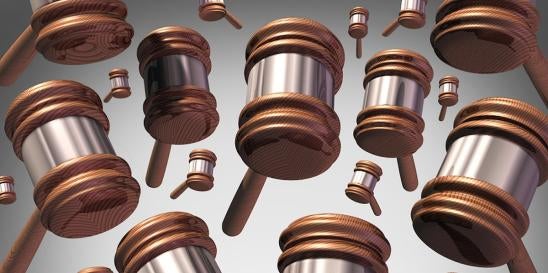A newly enacted, under-the-radar statute in California could undermine efforts by employers to challenge the expert opinion testimony regarding alleged emotional distress offered by employees at trial.
In many if not most employment trials, the employee’s lawyer offers the expert testimony of a psychiatrist/psychologist (paid for by the plaintiff) who tells the jury about the existence and extent of the emotional distress the employee allegedly suffered as a result of the adverse employment action at issue in the case. It is not unusual in such cases for the employer to offer an expert witness of its own who will challenge the conclusions reached by the employee’s expert witness.
Now, however, as a result of newly enacted California Evidence Code Section 801.1, a defense expert’s opinions related to alternative causes of the alleged emotional distress must be supported to a “reasonable medical probability,” which means that the defense expert must be able to testify that the adverse employment action was not (as the employee contends) more likely than not the cause of the alleged emotional distress. In short, this statute raises the bar for evidence offered by expert defense witnesses and may result in some courts barring their testimony altogether.
This new evidentiary standard could have substantial adverse consequences for employers in the typical case in which an employee is seeking sizeable emotional distress damages for alleged discrimination, harassment, retaliation or wrongful termination. It is not unheard of for employees in such cases to recover very large (six and even seven-figure monetary awards for the emotional distress they claim to have suffered). In such cases, the employer may seek to offer an expert psychiatrist/psychologist to testify about “other stressors” that may have caused the employee’s alleged emotional trauma (e.g., the recent death of a close family member, an unrelated medical condition, a drug or alcohol problem). However, the new standard makes it more difficult for an employer to do so, as the expert’s testimony must be supported to a reasonable degree of medical probability. An employer’s expert that is unable to support the opinion to the new, heightened standard may be barred from testifying as to those opinions.
Like so many legislative initiatives, this statute was explicitly (and expeditiously!) drafted by the trial lawyers’ many friends and admirers in the California legislature in order to overrule a court decision that happened to be favorable to employers. In Kline v. Zimmer, Inc., 79 Cal. App. 5th 123 (2022), the court held that a defense expert is not required to show that an alternative cause was more likely than not the cause of the plaintiff’s injuries, since the burden of proof ultimately rests with the plaintiff (not the defense). Under the new statute, however, both sides have the burden to provide expert testimony supported to a reasonable medical probability – not just the plaintiff.
Going forward, employers who seek to present expert testimony regarding alternative causes of the employee’s alleged emotional distress should make sure that their expert’s testimony is supported to a “reasonable medical probability” or risk losing the opportunity to rebut the plaintiff’s expert witness’ testimony with their own defense expert witness testimony.





 />i
/>i

